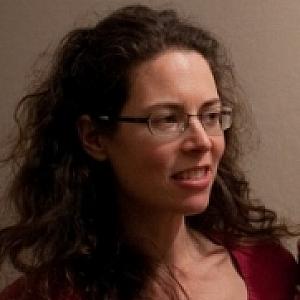
Rachel Dornhelm
Radio reporter/producer

Radio reporter/producer
I’ve worked as a freelance public radio reporter for the last eight years. I began my career in New York City reporting from many of that city’s immigrant communities. Those stories aired on the local NPR affiliate WNYC and print versions ran in the newspaper New York Newsday. In 2003 I became a regular contributor to the radio business program Marketplace and have covered topics from Sarbanes-Oxley reforms to a rash of farm worker deaths from heatstroke. Since moving to California in 2005, my stories have aired on KQED’s The California Report and the NPR news magazines Morning Edition, Latino USA and Day to Day. I won a 2009 L.A. Press Club National Entertainment Journalism Award for a Marketplace feature on Disney’s marketing to young girls. Before working in public radio, I was pursuing a graduate degree in Anthropology at New York University.
<p>Inspired by the lecture on web tools, I made a <a href="http://delicious.com/rdornhelm/uschealthj">collection of many of the websites that were mentioned over the weekend</a> on Delicious (link written out below). It includes the resources mentioned by Barbara Feder Ostrov and Jody Ranck, a
<p>When huge earthquakes hit Haiti and Chile recently, teams of doctors from California flew there to help. But physicians in disaster zones are often hampered by the lack of a critical need often taken for granted: reliable power. Now, a California couple's handmade solar power kits are filling that need.<span class="tcr-reporter"> Reporter: Rachel Dornhelm</span></p><p><span class="tcr-reporter">listen <a href="http://bit.ly/a4T4Gu">here</a></span>, aired on <a href="http://www.californiareport.org/">KQED's The California Report</a></p>
<p>Health Dialogues visits an Oakland clinic that offers community acupuncture, a more affordable way for its clients to receive acupuncture treatment. Rachel Dornhelm reports.<br /><br />Episode page:<br /><a href="http://www.californiareport.org/archive/R201001212000">http://www.calif… /><br />homepage:<br /><a href="http://www.healthdialogues.org/">http://www.healthdialogues.org/</a><br /><br /></p>
<p>The WIC federal nutrition program has just undergone a makeover, and vouchers are now good for fresh produce and healthy foods. This switch has put thousands of WIC-certified stores through some changes of their own. Rachel Dornhelm reports.</p>
<p>The WIC program, which offers nutrition education and food vouchers to low-income families, will soon get a healthy overhaul. But to cash in, food manufacturers have had to make some adjustments. Rachel Dornhelm reports.</p>
<p>The Women, Infants and Children Program provides food vouchers and nutritional education to low income families. California runs the biggest WIC program in the nation -- 60 percent of all infants born in this state are enrolled in it. Now, the program's changing the kinds of food it recommends.</p>
<p>The Women, Infants and Children Program provides food vouchers and nutritional education to low income families. California runs the biggest WIC program in the nation -- 60 percent of all infants born in this state are enrolled in it. Now, the program's changing the kinds of food it recommends.<span> Reporter: Rachel Dornhelm</span></p> <p><span>aired on <a href="http://www.californiareport.org/" title="http://www.californiareport.org/">http://www.californiareport.org/</a><…;
<p>California's unemployment rate crept up to 11.5 percent in May, far worse than the national rate of 9.4 percent. By any measure those numbers are bad. But estimates of the jobless rate for people with developmental disabilities are twice that high. And organizations working to place people with autism and Down syndrome in jobs say they're facing a double hit in the current economy.</p><p>Reporter: Rachel Dornhelm</p>